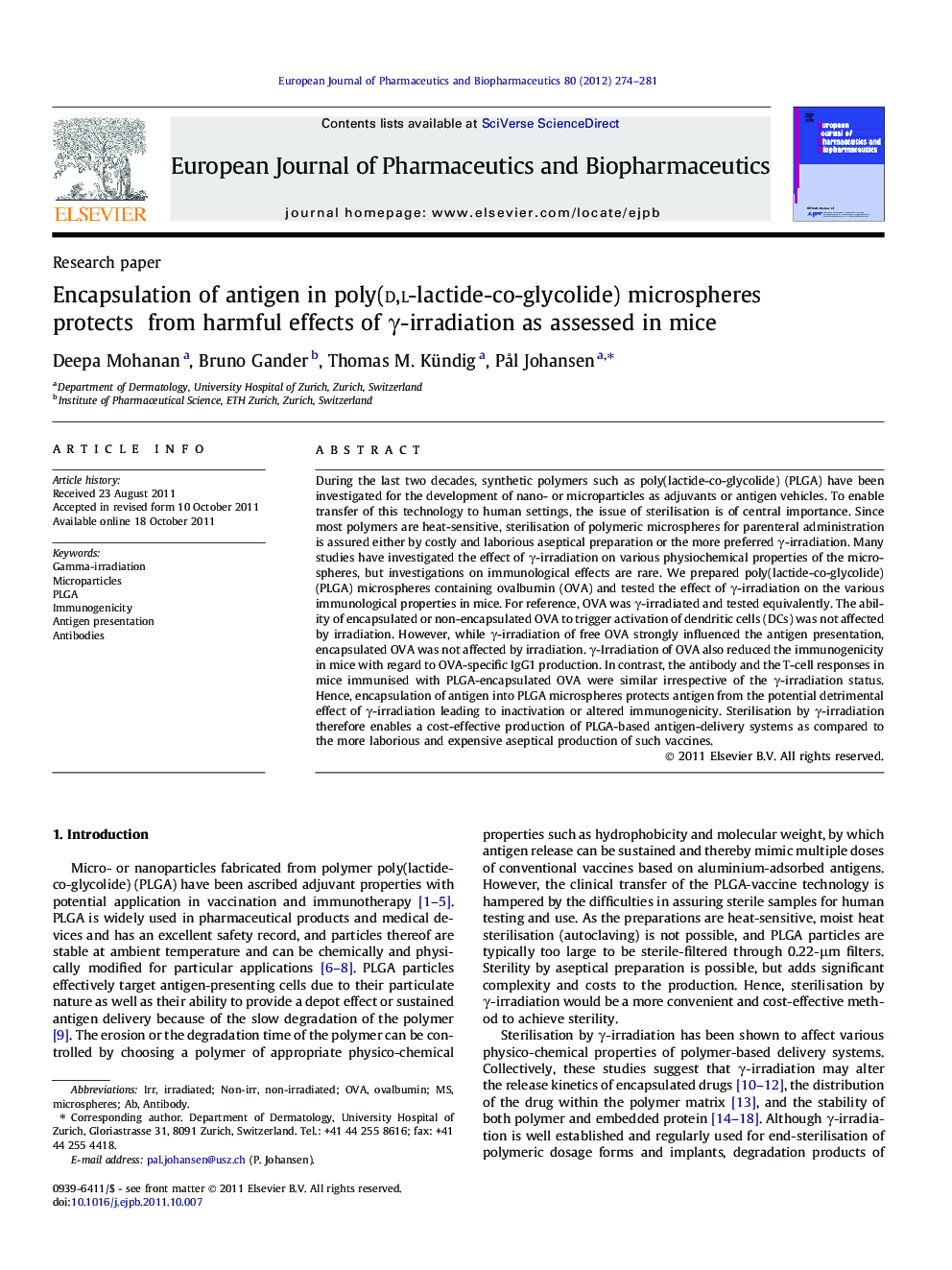| کد مقاله | کد نشریه | سال انتشار | مقاله انگلیسی | نسخه تمام متن |
|---|---|---|---|---|
| 2084005 | 1545363 | 2012 | 8 صفحه PDF | دانلود رایگان |

During the last two decades, synthetic polymers such as poly(lactide-co-glycolide) (PLGA) have been investigated for the development of nano- or microparticles as adjuvants or antigen vehicles. To enable transfer of this technology to human settings, the issue of sterilisation is of central importance. Since most polymers are heat-sensitive, sterilisation of polymeric microspheres for parenteral administration is assured either by costly and laborious aseptical preparation or the more preferred γ-irradiation. Many studies have investigated the effect of γ-irradiation on various physiochemical properties of the microspheres, but investigations on immunological effects are rare. We prepared poly(lactide-co-glycolide) (PLGA) microspheres containing ovalbumin (OVA) and tested the effect of γ-irradiation on the various immunological properties in mice. For reference, OVA was γ-irradiated and tested equivalently. The ability of encapsulated or non-encapsulated OVA to trigger activation of dendritic cells (DCs) was not affected by irradiation. However, while γ-irradiation of free OVA strongly influenced the antigen presentation, encapsulated OVA was not affected by irradiation. γ-Irradiation of OVA also reduced the immunogenicity in mice with regard to OVA-specific IgG1 production. In contrast, the antibody and the T-cell responses in mice immunised with PLGA-encapsulated OVA were similar irrespective of the γ-irradiation status. Hence, encapsulation of antigen into PLGA microspheres protects antigen from the potential detrimental effect of γ-irradiation leading to inactivation or altered immunogenicity. Sterilisation by γ-irradiation therefore enables a cost-effective production of PLGA-based antigen-delivery systems as compared to the more laborious and expensive aseptical production of such vaccines.
While sterilisation by gamma-irradiation altered the capacity of non-encapsulated antigen to stimulate immune responses in vitro and in vivo, the method did not impinge on the antigen when encapsulated in PLGA microparticles as assessed in vitro in antigen-presentation assays and in vivo in mice.Figure optionsDownload as PowerPoint slide
Journal: European Journal of Pharmaceutics and Biopharmaceutics - Volume 80, Issue 2, February 2012, Pages 274–281